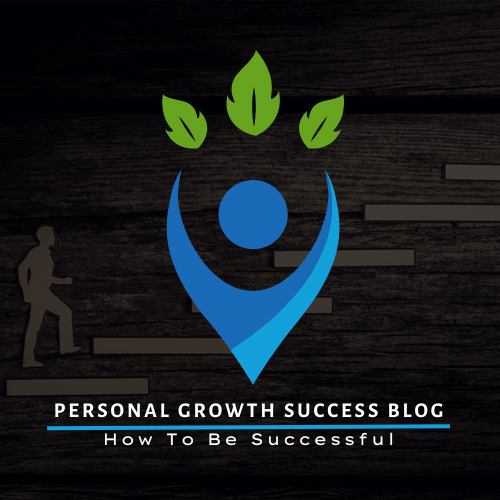
Are you feeling stuck in life? Are you struggling to achieve your goals and find fulfillment? Personal growth might just be the answer you’re looking for. In this article, we’ll be providing you with the ten best personal growth tips that can help you enhance various aspects of your life, including your mental and physical health, career success, and relationships.
Implementing personal growth practices in your everyday life can make a significant difference in achieving your goals, maintaining positive relationships, and living a mindful and fulfilling life. The best part? These tips are science-backed and can be easily integrated into your daily routine. So, let’s dive in and discover the simple yet effective strategies to bring about positive change in your life!
1. Practice Self-Reflection and Introspection to Gain a Better Understanding of Yourself and Your Goals
Personal growth and development are key aspects of leading a fulfilling life. One of the most important tools for achieving self-improvement is practicing self-reflection and introspection. To truly know ourselves, we must take the time to observe our habits, strengths, weaknesses, motivations, and fears without judgment. This process of self-awareness is a lifelong journey that helps us gain a better understanding of our goals and potential.
Through self-reflection, we can identify areas for improvement and growth. It requires asking ourselves honest and sometimes difficult questions like, “How could I have done better?” or “What can I do to improve?” These questions allow us to see our blind spots and recognize the areas where we need to work harder. By using self-reflection as a tool for personal growth, we become more self-aware and capable of achieving our goals, whether in our personal or professional lives.
2. Develop a Growth Mindset by Embracing Challenges and Learning from Failures
Developing a growth mindset is all about embracing challenges and learning from failures. It involves acknowledging that talents and abilities can be developed through hard work, dedication, and persistence. Those who possess a growth mindset see challenges as opportunities for growth, rather than obstacles in their path. They understand that failure is a natural part of the learning process and use it as a chance to reflect and improve. The benefits of cultivating a growth mindset are numerous, including increased resilience, motivation, and personal growth.
Successful people such as James Clear and Jim Rohn have cultivated a growth mindset throughout their lives. James Clear, author of the best-selling book Atomic Habits, emphasizes the importance of small, incremental changes in developing successful habits. He believes that setbacks and failures are simply opportunities for growth and that success comes from taking action, learning from your mistakes, and never giving up. Similarly, Jim Rohn, a renowned motivational speaker and self-help guru, believed in constantly improving oneself and embracing challenges. He famously said, “Don’t wish it was easier, wish you were better” – a sentiment that perfectly encapsulates the growth mindset mentality.
Ultimately, embracing challenges and learning from failures are crucial components of developing a growth mindset. Those who possess this mindset see challenges as a chance to learn and grow, rather than as obstacles holding them back. By adopting this approach, individuals can overcome obstacles, achieve their goals, and experience personal growth in all aspects of life.
3. Prioritize Self-care, Including Exercise, Healthy Eating, and Getting Enough Rest
Prioritizing self-care is crucial for personal growth and overall well-being. It involves taking care of the mind and body through exercise, healthy eating, and getting enough rest. Neglecting any of these areas of self-care can lead to negative consequences such as sickness and low energy levels. Therefore, it’s important to create a well-rounded self-care routine that incorporates all three areas.
Exercising regularly not only improves physical health but also has a positive impact on mental health, as it releases endorphins that elevate mood and reduce stress. Eating a balanced diet full of nutrient-dense foods helps nourish the body, boost immunity, and prevent chronic illnesses. Equally important is getting enough rest, which allows the body to repair and rejuvenate. Establishing a consistent bedtime routine and limiting electronic device usage before bed are effective ways to improve sleep quality and ensure adequate rest. By prioritizing self-care and making it a daily habit, you’ll be able to maximize personal growth and lead a healthier and happier life.
4. Set Achievable Goals and Create a Plan to Reach Them
Setting achievable goals and creating a plan to reach them is essential for personal growth and development. With clear and specific goals, we have direction in life and are more likely to achieve what we want. Writing our goals down and creating a plan helps us keep focus, develop necessary skills, and stay motivated in the long run.
To set achievable goals and create an action plan, we must first identify our long-term objectives. We then break them down into smaller, more manageable pieces and determine a timeline to work on each piece. We should also consider the resources and support needed to achieve our goals. By breaking down our objectives into smaller, more achievable steps, we can feel more accomplished and motivated to keep progressing.
Tracking our progress and adjusting goals as necessary is also crucial. This helps us stay on track and identify any obstacles that may arise in the process. By adjusting our goals, we can make sure that they remain realistic and achievable. Overall, setting achievable goals and creating a plan to reach them can help us maximize our potential, take action towards our desires, and ultimately lead a more fulfilling life.
5. Cultivate Positive Relationships With Supportive and Encouraging People
Positive relationships play a critical role in personal growth, and cultivating a supportive and encouraging network of people is essential for our overall well-being. Our relationships can influence our habits and affect our mental and emotional health. Surrounding ourselves with positive and supportive individuals is key to developing healthy habits and contributing to our personal growth.
One practical way to cultivate positive relationships is to be a good listener. Actively listening to others is a way of showing empathy, understanding, and caring. Additionally, expressing gratitude and acknowledging people’s contributions to our lives can help build deeper connections. Investing time and effort in meaningful connections also goes a long way in strengthening our relationships. Ultimately, surrounding ourselves with people who inspire and encourage us to become our best selves can help us achieve personal growth.
6. Practice Gratitude by Focusing on What You Have Rather Than What You Lack
One of the most powerful ways to cultivate a positive mindset is by practicing gratitude. When we shift our focus towards what we have rather than what we lack, we can cultivate qualities like compassion, patience, and love. We can start to see the world through a lens of abundance, and this can help us feel more optimistic and content with our lives.
There are many practical ways to practice gratitude in our everyday lives. We can keep a gratitude journal and write down things we are grateful for each day. We can express gratitude to others by saying thank you or doing something kind for them. We can also take time to reflect on positive experiences and focus on the good things that have happened to us. By making gratitude a regular practice, we can train our minds to focus on the positive instead of dwelling on negative thoughts and emotions. This shift in perspective can positively impact our mental health and overall well-being.
7. Stay Open to New Experiences and Opportunities for Personal Growth
Staying open to new experiences and opportunities is essential for personal growth. Being open-minded allows us to learn new skills, gain new perspectives, and develop a growth mindset. When we close ourselves off to new experiences, we limit our potential for growth and miss out on valuable opportunities.
One way to stay open-minded is to attend workshops and conferences related to our interests. These events offer a chance to learn from experts and connect with like-minded individuals. It’s also important to read books and articles on topics outside of our area of expertise. This not only expands our knowledge but also challenges our assumptions and encourages us to think differently. Additionally, being receptive to feedback and constructive criticism can help us identify blind spots and areas for improvement.
Another way to stay open to new experiences is to experiment with new hobbies or explore new places. Getting out of our comfort zones and trying new things can be intimidating but also exhilarating. It’s an opportunity to discover new interests and challenge ourselves in new ways. By staying open-minded, we can embrace the messiness of life and maximize our potential for personal growth.
8. Develop a Daily Routine That Includes Mindfulness Practices Such as Meditation or Journaling
In our fast-paced lives, it’s easy to feel overwhelmed and lost. This is where daily routine and mindfulness practices come to play. Developing a daily routine that includes mindfulness practices enables us to cultivate a more present and intentional way of living. As we go through our day with a clear head and a focused mind, we’re able to reduce stress and anxiety, improve emotional health, and enhance self-awareness.
One of the most effective mindfulness practices is meditation. Regular meditation sessions help to reduce stress and anxiety by lowering the levels of cortisol, the hormone responsible for stress. Additionally, meditation enhances self-awareness by requiring us to focus on the present moment. This not only lengthens our attention span but also reduces age-related memory loss. Moreover, meditation generates kindness towards ourselves and others, fights addiction, improves sleep, and even helps control pain.
Another mindfulness practice that can enhance self-reflection and self-awareness is journaling. By writing down our thoughts and feelings, we’re able to gain clarity and process our emotions better. Journaling also helps us identify patterns in our thoughts and behaviors, leading to greater self-awareness. Incorporating mindfulness practices into our daily routine helps us live in the present moment, savor our experiences, and lead a more fulfilling life.
9. Learn to Manage Stress Effectively Through Techniques Such as Deep Breathing and Visualization
Stress can impact anyone’s life, regardless of age, gender, or profession. It affects everyone, and it is essential to learn effective techniques to manage it. Two powerful techniques include deep breathing and visualization. With deep breathing, you can slow down your breath and reduce tension in the body, promoting relaxation. Visualization involves picturing peaceful scenes or happy places to calm your mind and decrease stress levels. These techniques are beneficial and can be practiced by anyone, anywhere, and at any time.
To maximize the benefits of these techniques, focus on being mindful of your breath and the sensations of relaxation with every inhale and exhale. Being mindful will allow you to concentrate on the present moment while ridding your mind of anxiety and tension. By consciously practicing deep breathing and visualization, you can train your mind and body to handle stress better. So, take a few moments each day to practice these techniques and incorporate them into your routine to experience a more relaxed and stress-free life.
10. Take Responsibility for Your Actions and Choices, and Work to Develop Greater Self-discipline and Accountability
Taking responsibility for one’s actions and choices is a crucial step towards personal growth. It means owning up to one’s mistakes, learning from them, and taking proactive steps to improve oneself. Developing greater self-discipline and accountability can help individuals achieve their goals and live a more fulfilling life. This requires setting clear objectives and creating a plan of action to achieve them, as well as being accountable for one’s progress. By doing so, individuals can gain a sense of control over their lives and increase their chances of success.
To cultivate self-discipline and accountability, it is important to adopt a proactive attitude towards personal growth. This involves taking ownership of one’s actions and seeking to grow and improve as a person. Setting specific, measurable, attainable, relevant, and time-bound goals can provide direction and motivation to achieve personal growth.
It also helps to have accountability measures in place, such as working with a mentor or joining a community of like-minded individuals who can provide support and feedback. With dedication and commitment, taking responsibility for one’s actions can lead to greater self-discipline and accountability, propelling individuals towards their personal goals and leading to a more fulfilling life.

Conclusion
In conclusion, personal growth requires dedication and commitment. However, with the right mindset and strategies, anyone can start working towards achieving their goals and leading a more fulfilling life. The 10 best personal growth tips discussed in this article provide useful guidance to help individuals take control of their lives and move forward. From mindful practices like journaling to developing accountability measures such as setting SMART goals, these tips can help individuals achieve success in their journey towards personal growth.







